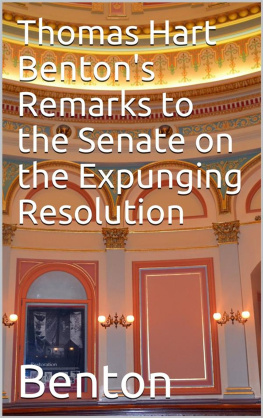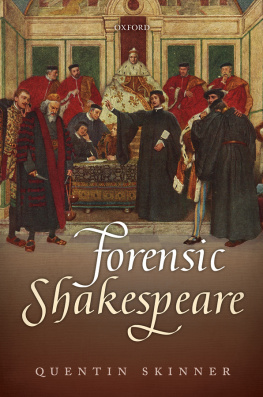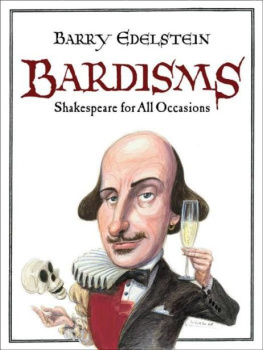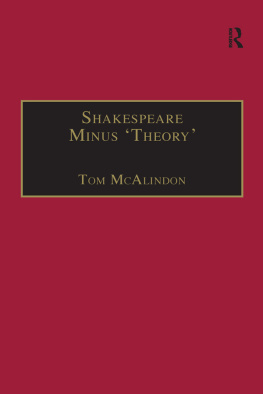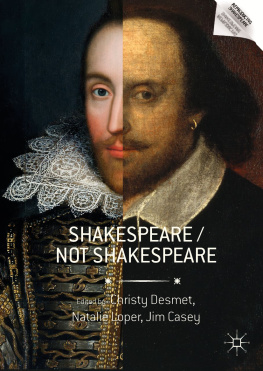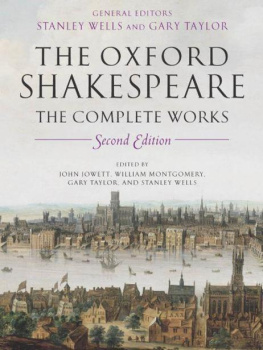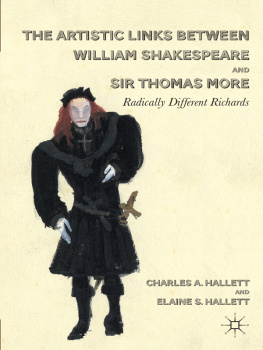PREFACE
Thomas Whately was a politician first, undersecretary to Lord North, a man of letters by avocation, and perhaps best known by contemporaries for his Observations on Modern Gardening, a peculiarly controversial treatise often reprinted, attacked, and praised. At his death in 1772 he left unfinished the present essay on Macbeth and Richard III, but the material was ordered and the work issued anonymously by a surviving brother, Joseph, in 1785. It occasioned in the following year a sharp reply by young John Philip Kemble, which was in turn enlarged and reissued in 1817.
A Second Edition of Remarks, naming Whately as author, appeared in 1808, and notes that the 1785 printing received a small impression, met with a quick sale, and has long been extremely scarce. Jaggard cites an interim appearance, 1790 (no locations, probably a ghost), which I have not seen. We have chosen to reprint the Third edition, prepared by the grandson of Thomas, Archbishop Richard Whatelyauthor himself of numberless tracts and editions, notably of Baconin 1839. The Archbishop calls his grandfathers Remarks one of the ablest critical works that ever appeared; Charles Knight claims to have been spurred by it in 1811 to devote much of a lifetime to editing Shakespeare.
Before his death Whately apparently meant to extend his study to some eight or ten of Shakespeares principal characters. Despite the prior appearance in print of William Richardsons Philosophical Analysis and Illustration of some of Shakespeares Remarkable Characters (1774), Whatelys attempt may be the earliest character study of Shakespeare in the modern sense; though subsequently far eclipsed by Morgann (1777) and later by Hazlitt, he deserves more attention than he now receives (Nichol Smith).
The copy now reproduced is in the possession of the Publishers, and was dismantled by the General Editor. It has been collated with BM 20098.b.13 ([A]H8, lacking [AI]) and the Boston Public library copy (complete). There are no cancels. Leaf [AI], not here present, is a half-title. The text of 1839 is a faithful reprint of 1785, the preface, appendix and notes being new.
April 1969
A.F.
REMARKS
ON SOME OF THE
CHARACTERS OF SHAKESPERE,
BY
THOMAS WHATELY ESQ.
THK AUTHOR OF OBSERVATIONS ON MODKRN GARDENING.
ILLE PROFECIO
REODERR PERSONS SCIT CONVENIENTIA COIQUE.
Horat.
EDITED BY
RICHARD WHATELY, D.D.
ARCHBISHOP OF DUBLIN.
THE THIRD EDITION.
LONDON:
JOHN W. PARKER, WEST STRAND.
MDCCCXXXIX.
PREFACE BY THE EDITOR.
THE Work of which the third edition is now before the reader, was first published, after the authors death, by his brother, the late Rev. Dr. JOSEPH WHATELY, father of the present editor.
The parallel between the characters of Richard and Macbeth, was only one out of several in which the author had designed to illustrate the peculiar power of Shakespere in the delineation of character; but he suspended his design, in order to finish and prepare for the press his well-known treatise on Modern Gardening, first published in 1770. Immediately after that time he was engaged in such an active scene of public life, (being private secretary to one of the Ministers,) as left him but little leisure for literary pursuits. In 1772 he died, leaving behind him, in manuscript, the work as it now appears; which, though but a small portion of what had been originally designed, is complete as far as it goes, and was esteemed, (says the original editor,) by all who have perused the manuscript, as too valuable to be suppressed.
Subsequently, this decision has been fully confirmed by competent judges; who have considered this little volume, not only as entitled to a high rank among the commentaries on Shakespere, but as presenting some very curious and interesting views of that which the great dramatist so well delineatedhuman nature.
It may be proper to notice in this place a remark which I have heard made on this work, and which, though not necessarily implying any disparagement of it, may yet be so understood. It has been suggested that some of the passages brought forward by Mr. Whately as characteristic, and as appropriate, respectively, to Richard and Macbeth, were probably not meant to be such by the poet himself, but may have dropped, as it were, from his pen, casually, and without any thought of exhibiting the peculiar character of the speaker.
It should be remembered, however, that, supposing this opinion to be perfectly correct, it does not at all militate against anything that is maintained in these pages, nor in the least detract from their value. For Mr. Whately, it should be observed, is merely pointing out that such and such speeches do indicate character; not that they were, in each case, written with that design. If, then, they really are characteristic, the criticism is fully borne out, whatever may have been the design of Shakespere.
If I were called on to state my own conjecture as to that design, I should be disposed to go much beyond the remark above alluded to. I doubt whether Shakespere ever had any thought at all of making his personages speak characteristically. In most instances, I conceiveprobably in allhe drew characters correctly, because he could not avoid it; and would never have attained, in that department, such excellence as he has, if he had made any studied efforts for it. And the same, probably, may be said of Homer, and of those other writers who have excelled the most in delineating characters.
A man possessing, like Shakespere, a very vivid imagination, combined with an insight into human nature, will, when he figures to himself (to use a homely but expressive phrase) any fictitious personage, spontaneously and unavoidably conceive it with such a force and distinctness of form and colouring, that it will stand before his minds eye, as an individual; and the image thus framed will suggest to him every expression and action that is characteristic of the imagined individual. The speeches, consequently, which he puts into the mouth of such a personage, and the conduct he attributes to him, will necessarily be characteristic, without any distinct effort or care in each case to make them so, but merely from the vividness of the original conception.
A similar process takes place in the mind of every man of ordinary good sense, in the case of any




